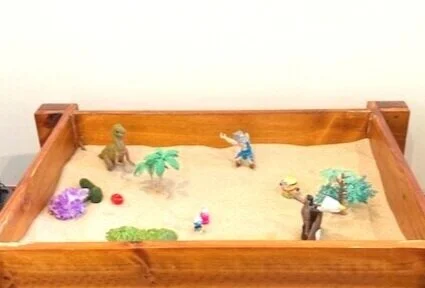
psychoTHERAPY ServiceS
Please note that doctor’s referral is not necessary for Journey Psychology to be able to support you and your family.
However, if clients wish to claim the Medicare rebate they will need a doctor’s referral and Mental Health Plan.
Monique attends to all referrals personally, and encourages prospective clients to phone her on +61 402 400 575 for an initial discussion, and for information regarding fees and availability.
CHILD THERAPY
My approach to child therapy is structured on evidence-based child psychoanalytic theory. Children often present with grief, anxiety, bullying issues, low self-worth, self-harm, social problems, anger management problems and difficulties with confidence and assertiveness. Some children have the challenges of ADHD, ADD, Asperger’s Syndrome and autism.
I also see several children who have had significant traumas in their life and whose difficulties with emotions lead to somatic issues.
The play therapy techniques used involve talking and intense observation and clarification of the play which they demonstrate during the session. The child can choose from the sand tray, puppets, doll’s house, drawing, lego and a toy doctor’s kit. As sessions develop it is the interaction within the playing space where emotions are explored, diffused and are thus able to be held without spilling into unhelpful behaviours.
The first session involves meeting with the child’s parents/caregivers during which a detailed family history is taken and parental thoughts, observations and concerns are discussed. All sessions run for between 45minutes to 60 minutes.
The child is then seen for three sessions without their parents during which an assessment is formulated and a therapy plan developed. The assessment is also therapeutic and becomes the foundation for ongoing treatment.
After the third session, the adults meet in another session to discuss the assessment and determine the next step, Children are seen weekly and the length of treatment varies between 3 months and 2 years.
There are regular meetings with parents (usually at the beginning or end of each school term) and I greatly value parent’s updates in between sessions.
ADOLESCENT THERAPY
Adolescence consists of huge change for both the adolescent and their family. It is the time where not only hormones play havoc with your child's emotions and body, but so too do the challenges of adapting to many changes in their life. Greater academic and peer pressures, expectations to be more responsible and to live up to expectations of media and society put great stress on teenagers. Many of these expectations (especially highlighted by media) are unrealistic and inappropriate.
The essence of adolescence is immaturity! They are not adults. They are in between a world of child and adult where they often feel that everything is out of their control. Not only has their body become an alien entity of smelliness and hairiness, but they feel that they have little choices in their life.
Whereas childhood focused on appropriate attachment, adolescence is the journey of appropriate detachment. It's goal is a mutual letting go which gives freedom to develop independence and identity.
This requires transformation from both the parent and the adolescent. Separating from parents (with more dependence on peers), accepting challenges and risks, curiosity, autonomy, maturity, negative attitude (boredom, criticism, complaints), active and passive resistance to authority and testing limits are part of the adolescent's journey. Disorganisation (what used to work with your child doesn't anymore!), critical and negative attitude (child's more difficult behaviour causes more criticism), active and passive resistance and irritability (in response to adolescent's active and passive resistance and irritability) and anxiety (triggered by adolescent limit testing) is the parent's journey.
Adolescent therapy also involves a mix of “talking” therapy and sometimes sand tray therapy which is also used with children and adults. It provides a creative medium for clients to depict a picture or story about their world and in doing that, perhaps see it from a different perspective or use it to shed some intensity around difficult emotions.
It is the choice of the adolescent as to whether they use the sand tray in therapy. Adolescents commonly present with similar issues to younger children such as grief, anxiety, bullying issues, low self-worth, self-harm, social problems, anger management problems and difficulties with confidence and assertiveness. Some adolescents also have the challenges of ADHD, ADD, Asperger’s Syndrome and autism. I also see several adolescents who have had significant traumas in their life and whose difficulties with emotions lead to somatic issues. In addition to all this, they are trying to navigate the complex and challenging process of adolescence.
All sessions run for 45-60 minutes. There are regular meetings with parents and I greatly value parent’s updates in between sessions. Adolescents are usually seen weekly and the length of treatment varies between 3 months and 2 years. Sessions can become fortnightly as treatment progresses.
ADULT THERAPY
I have a few adult clients but mainly see children and adolescents. My approach with adults also involves a psychoanalytic perspective but I incorporate different techniques, such as Cognitive Behavioural Therapy, Gestalt therapy and Narrative therapy, according to the individually tailored clinical plan. Most of my adult therapy involves the use of the Sand Tray Technique.
All sessions run for between 45minutes to 60 minutes. Adults are usually seen weekly but this can become fortnightly as treatment progresses. The length of treatment varies between 3 months and 2 years.
CLINICAL SUPERVISION
Monique also offers specialised clinical supervision to other professionals and therapists who are interested in learning about and developing their skills in psychoanalytic therapy and play therapy with children and adolescents.
“It is in playing, and only in playing, that the individual child or adult is able to be creative and to use the whole personality, and it is only in being creative that the individual discovers the self.”
— D.W. Winnicott, British pediatrician

Get in touch.
Don’t hesitate to reach out with any questions.








